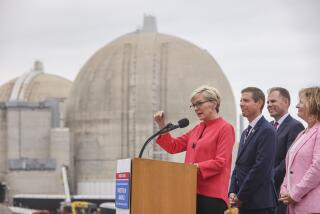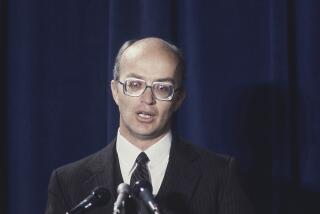Debate Over Energy Policy
The editorial is misleading on nuclear power as proposed in the Senate bill. Simple, basic and at no cost to taxpayers, nuclear licensing reform is essential just to allow nuclear power back into the marketplace.
The next version of the bill is likely to include more subsidies and requirements for conservation. But the arithmetic is still obvious: Even with a massive national energy conservation program, the nation will need new base-load power plants by the end of the decade. Without nuclear in the marketplace, we will have to burn more coal and natural gas.
The nuclear licensing proposals do not cut out any public participation; they just require that all the hearings take place up front, before a plant is started, and that the same issues cannot be brought up over and over again just to force delays and add costs the ratepayers ultimately have to pay.
The nuclear manufacturers and utilities have been calling for standardized plants for 20 years. But the regulatory process cannot now issue a standardized plant license that utilities or investors have confidence in, either for some new design or for improved designs, based on the experience from the 112 plants now in operation.
The process won’t succeed unless the basic reform The Times calls “superficial” is put into law by Congress.
A. DAVID ROSSIN, Los Altos. Rossin was assistant secretary for nuclear energy, U.S. Department of Energy, 1986-87.
More to Read
Sign up for Essential California
The most important California stories and recommendations in your inbox every morning.
You may occasionally receive promotional content from the Los Angeles Times.










